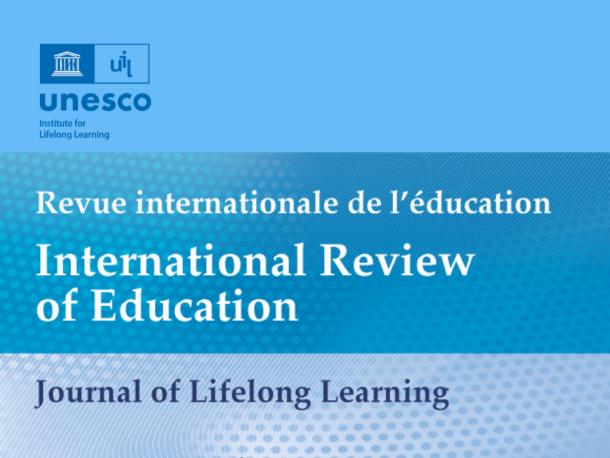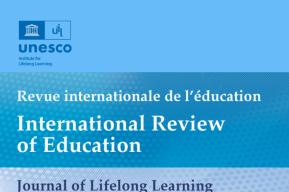News
Call for special issue proposals

The editorial team of the International Review of Education – Journal of Lifelong Learning (IRE) invites proposals for guest-edited special issues of the journal.
IRE welcomes proposals for guest-edited special issues within its core remit of lifelong and life-wide learning in international and comparative contexts. However, in 2023 we emphasize the following six themes in particular:
- Education for sustainable development and issues related to the 2030 Agenda for Sustainable Development (with a particular focus on climate action, Indigenous knowledge systems, environmental education, and the green transition)
- Global/active citizenship education and the role of education in empowering communities, supporting civic action and activism, and fostering democratic values
- The future of lifelong learning, including the impact of artificial intelligence on education, the role of lifelong learning in preparing people for technological change and the relationship between learning and work
- Studies of obstacles to education, especially for vulnerable and disadvantaged groups such as refugees, migrants and internally displaced persons, prisoners and people with disabilities
- Explorations of the inter-sectoral scope of lifelong learning, and the links between education and other sectors, such as health and criminal justice
- The global governance of education, including the role of international organizations in shaping educational policies and discourses and shifts in global governance, for example public–private partnerships.
Full proposals using our template or shorter outline proposals should be submitted to the Executive Editor of IRE, Paul Stanistreet (p.stanistreet@unesco.org) by 28 August 2023 in order to be considered by the 2023 session of the IRE Editorial Board.
Proposals will initially be considered by the IRE editorial team and prospective guest editors may be asked to adjust or provide more information on their proposals before these are evaluated by the Editorial Board in autumn 2023.
Proposals should be clear and concise and demonstrate an explicit connection to the core thematic concerns of the journal. You can find out more about the journal’s thematic scope here.
Proposals should be about two pages in length, include the names and affiliations of the prospective guest editors, the proposed title, rationale and the main themes of the special issue, as well as their relevance to the thematic scope of the journal. You may be asked to expand on some of these points if your proposal lacks some detail.
Proposals can be submitted in either English or French, as can articles.
Please note that we are happy to informally discuss your ideas or answer any questions you may have in the meantime. Please do not hesitate to get in touch: p.stanistreet@unesco.org
About IRE
IRE is the longest-running international and comparative education journal in the world. Founded in 1931 by German educationalist Friedrich Schneider, the journal is inextricably linked with the history of the field. Since 1955, IRE has been under the aegis of UNESCO. While remaining editorially independent, IRE is aligned with the mandate of UNESCO to promote international collaboration and peace.
IRE is a hybrid journal, which aims to publish the best scholarship from around the world, while also influencing the development of policy and practice in the field of lifelong learning through evidence-based research. It is genuinely and unapologetically international, publishing work from every world region and offering mentoring support to authors whose first language is not English or French. The journal is published by Springer.
The editorial team of IRE is based at the UNESCO Institute for Lifelong Learning (UIL) in Hamburg, Germany. Its work is supervised by an international editorial board. IRE welcomes empirical, theoretical/conceptual and policy-related articles and research notes from a variety of disciplinary orientations.







